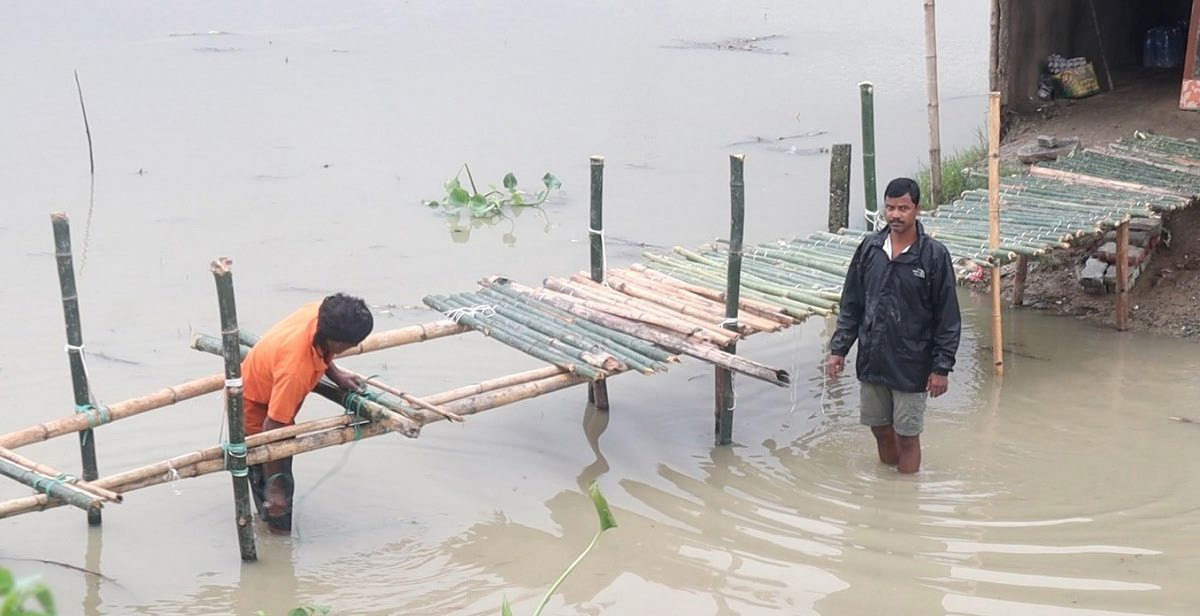Dams built on Indian side inundate Biratnagar
BIRATNAGAR, JUNE 29
Dams constructed by India for a railway track and an integrated customs check post has inundated the southern part of Biratnagar.
Due to the dams, floodwater has inundated Budhnagar area of Biratnagar.
A seven-year-old boy died due to the inundation. Local Jayapal Mandal’s son Ankush Mandal, 7, had drowned in the floodwater last Thursday.
According to ward 18 Chair Rajdev Yadav, India constructed large dams while building the ICP and laying railway track, but no hume pipes were installed in the dams for safe passage of rainwater.
The dams were constructed without consulting the Nepali side.
Locals say that India has used railway tracks as dams to control flood.
Yadav complained their repeated pleas to check the flood and inundation went unheeded. “While construction work was in progress, we informed the metropolis and the local administration, but our pleas fell on deaf ears,” said local Shambhu Kumar Yadav.
Rainwater has inundated arable land. The water is about to destroy planted paddy as well. Flood has submerged Khoksaha, Samadagi, Lawaghat, Bhediyari and Dangrakhola areas in Biratnagar.
Locals of Budhnagar have been experiencing this problem for the last three years. The land remains mostly inundated from the month of June to September.
Biratnagar Mayor Bhim Parajuli said Budhnagar was inundated after India constructed dams in the name of the ICP and railway track. “We have been asking the federal government to take necessary measures to ensure smooth passage of rainwater, but no effort has been made by the government,” said Parajuli.
Parajuli said the inundation problem could not be solved unless proper drainage system was built to drain out water.
Morang Chief District Officer Madan Bhujel said they could not do anything to control inundation at the local level.
“Budhnagar area was inundated and we informed the central government about it,” said CDO Bhujel.
A version of this article appears in e-paper on June 30, 2020, of The Himalayan Times.






